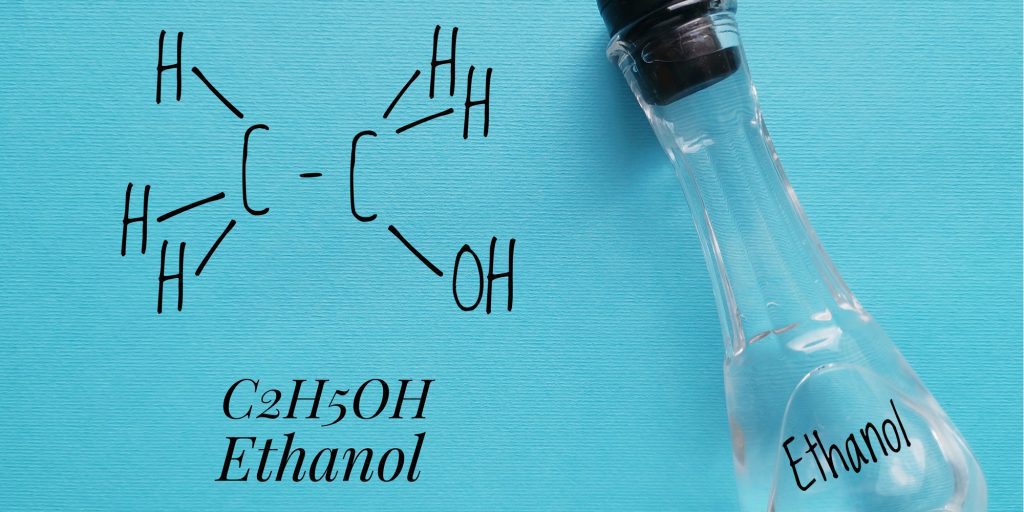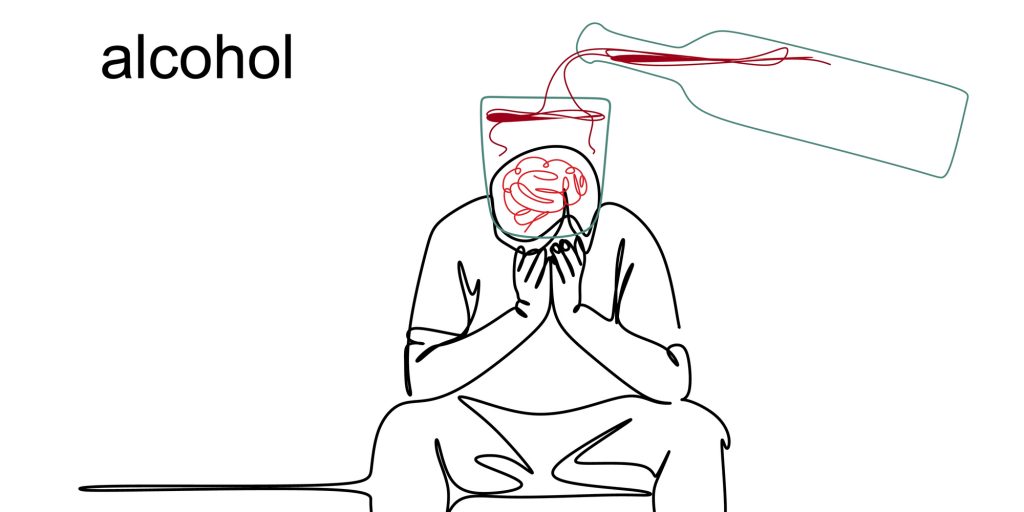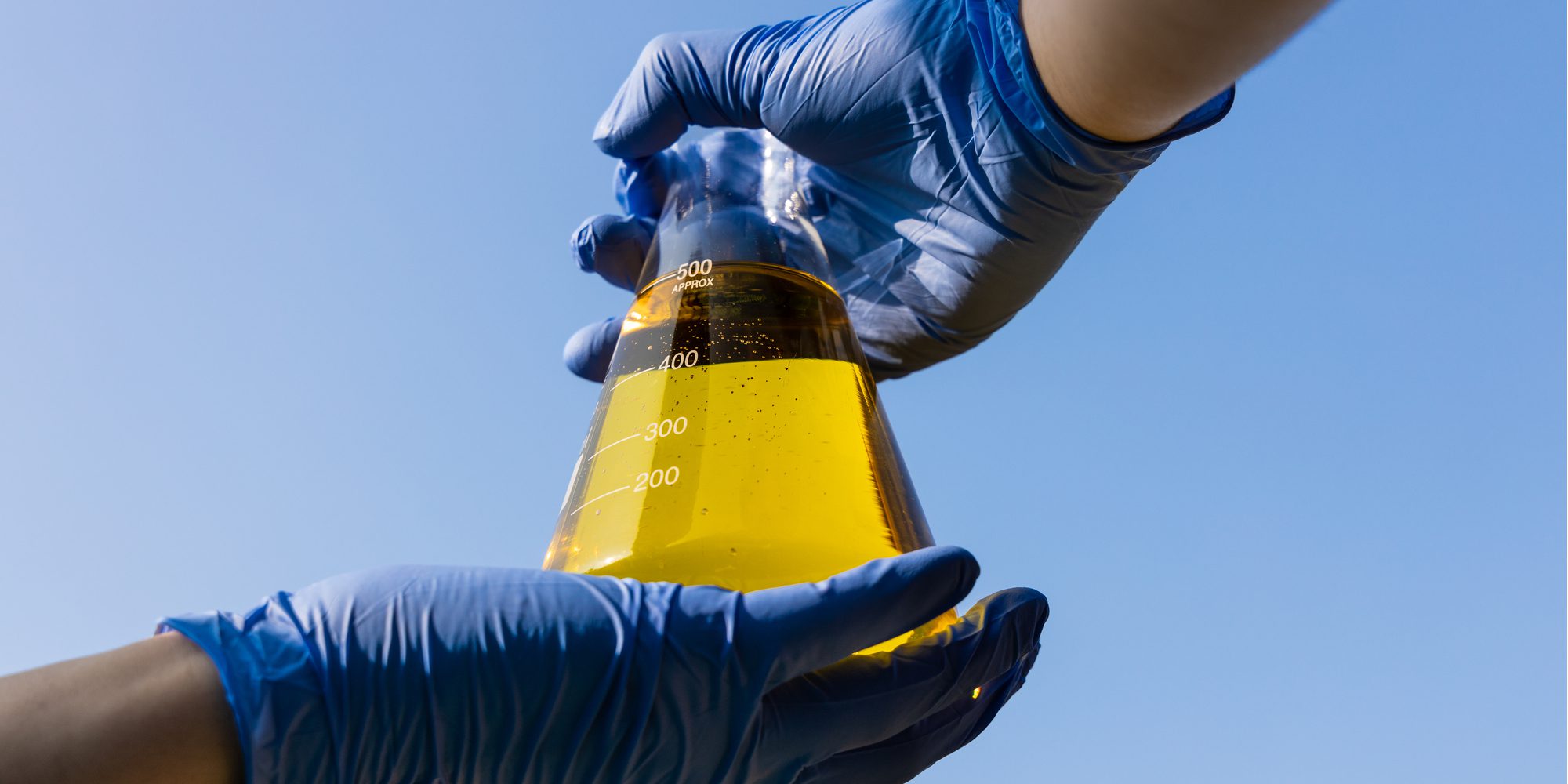EtOH Meaning
EtOH is an abbreviation or acronym used to describe ethyl alcohol, the clear liquid used in cleaning products, antiseptics, and alcoholic beverages. This terminology is often found in academic or medical publications when referring to alcohol, grain alcohol, or ethyl alcohol in its purest form. In addition, while the chemical abbreviation of EtOH is accurate, it has also become a slang term used among those attempting to avoid discussing alcohol openly. Learn more about ethanol, ethanol abuse, chronic ethanol use disorder, and how to find help for ethanol addiction in Florida.
What Is Ethanol Abuse?

Ethanol is another word for alcohol, a legal, widely available, psychoactive drug that acts as a central nervous system (CNS) depressant. When taken in excess, the short-term effects of ethanol will cause a person to feel sleepy, sick, or confused. However, an overdose on ethanol can become a medical emergency.
Most adults use EtOH, or alcohol, at some point in their lives. And unfortunately, ethanol abuse is a prominent issue in the United States. In fact, in 2019, just over 14 million adults in the U.S. were struggling with an alcohol use disorder (AUD). Given this, it’s not surprising that ethanol abuse is a leading cause of preventable death. But what is ethanol abuse, or chronic ethanol use disorder, exactly?
EtOH Abuse Definition
A standard drink can be defined as about 14 grams of ethanol. This is the equivalent to the following:
- a 12oz. beer
- a five-ounce glass of wine
- a 1.5 oz. shot of distilled liquor
Given this, light to moderate EtOh use can be defined as less than seven drinks per week for women, and less than 14 drinks per week for men. Any more than this can be considered ethanol abuse. In addition, binge drinking five or more times a month can be considered ethanol abuse, even if the drinks are technically kept under the weekly allotment of moderate drinking. Unfortunately, not only does any kind of ethanol abuse, or excess alcohol use, invite substantial health risks to develop, but alcohol abuse may also affect a person economically and socially.
Effects of Chronic Ethanol (EtOH) Abuse

The effects of long-term alcohol abuse are well-documented. Nearly every part of the body is affected when drinking heavily. The main organs damaged by ethanol abuse include the:
- liver
- heart
- brain
- kidneys
- pancreas
- stomach
However, a person who is drinking too much may start to suffer in other parts of life as well. For example, responsibilities may be swept aside causing stress within the workplace or the family as episodes of intoxication increase. In addition, ethanol abuse can have detrimental effects on mental health.
Alcohol Abuse and Mental Illness: Co-Occurring Disorders
Ethanol abuse and mental illness often go hand in hand. Oftentimes, it is difficult to distinguish which disorder occurred first. For example, a person suffering from symptoms of mental illness may begin self-medicating with alcohol in an attempt to find relief. Unfortunately, alcohol abuse only worsens mental disorders by intensifying the chemical imbalance within the brain. Alcoholism can also “kick off” dormant mental illnesses by agitating the brain’s chemistry.
Alternatively, long-term, chronic drinking can open the door to emotional disorders such as anxiety, depression, and alcohol-induced psychosis. This is due to the damage that alcohol inflicts on the brain’s chemistry. In any case, when these conditions present together, they are considered co-occurring disorders or dual diagnosis.
Signs of EtOH Abuse

There are many indicators that point to excessive alcohol use. While daily drinking is one of them, a person can still be overusing alcohol even without daily drinks. Other signs of alcohol abuse include:
- Frequent binge drinking
- Using alcohol as an emotional crutch (i.e., to celebrate, to mourn, to combat loneliness, etc.)
- Hiding alcohol use
- Avoiding engagements unless alcohol is involved
- An inability to take desired time away from alcohol
- Experiencing alcohol withdrawal symptoms
If you are experiencing any of these signs of alcohol misuse, rest assured that you are not alone. Alcohol use disorder and chronic ethanol use disorder is common in the United States. Fortunately, effective help for alcohol abuse is available.
Finding Help for EtOH Abuse in Florida
At the Blackberry Center in Central Florida our treatment model is simple: to meet you where you are with substance abuse and to guide you to a life without ethanol abuse. To accomplish this, we consider your individual case and establish a recovery plan based on your goals for life after rehab.
Alcohol addiction treatment at our accredited facility usually begins with alcohol detox followed by inpatient addiction treatment. In this way, we are able to assist you 24/7 in a safe environment. Often our treatment plans include programs like:
- Medication support (if needed)
- Client intake evaluation
- Dietary planning
- Recreational Therapy
- Group therapy
- Personalized assessment of drug and alcohol habits with an addiction specialist
- Discharge planning
At the Blackberry Center, we are also qualified dual diagnosis providers, meaning that we are prepared to treat addiction alongside any co-occurring mental disorders.
It is our mission at the Blackberry Center to provide a full continuum of care that provides assistance with recovery before, during, and after treatment at our addiction treatment facility. To learn more about addiction treatment options in the Orlando area, contact our admissions specialists at (813) 908-4199 or use our confidential online form. At the Blackberry Center, you do not have to suffer from addiction alone, we will be with you every step of the way.
EtOH (Ethanol) Abuse FAQs
EtOH is the chemical label or acronym for ethyl alcohol (ethanol). Usually, this term is found in academic or medical literature. However, it can also be used as a slang term to describe alcoholic beverages.
EtOH is the abbreviation for ethyl alcohol. This is the same alcohol that’s found in cleaning products, antiseptics, and alcoholic beverages. EtOH abuse, then, would be the same as alcohol abuse. Alcohol abuse is considered anything more than light drinking (more than seven drinks per week for women and more than 14 for men).
Alcohol abuse can be considered a stepping stone to a diagnosable alcohol use disorder or alcoholism. In other words, any excessive alcohol use can be alcohol abuse. However, alcoholism refers to true alcohol addiction or dependency.

